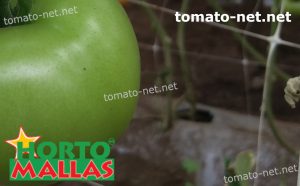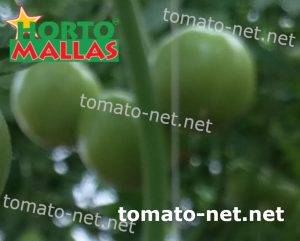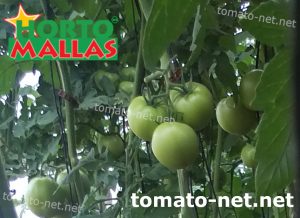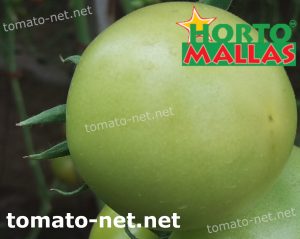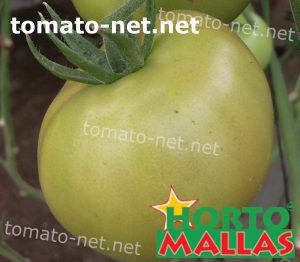Produce Healthier Tomatoes by Using Tomato Net System
Netting or trellising is a common practice in crop farming. This support system is significant with growing tomatoes because it has been proven to be a very effective system. When tomato net is in place, tomatoes are relieved of pests, potential damage and weed attacks.
Tutoring Tomatoes Result in Better Yields
Tutoring tomatoes has been gaining popularity as a farming practice that result in proper management and increased yield. This practice helps provide a supporting structure that takes care of the plants during their growing stage.
Tomatoes, just like any other vegetable crops require regular and sufficient sunlight exposure. Sunlight allows the crops to produce more fruits, and to achieve that at least eight hours of daily sunlight exposure must be assured. When you tutor the tomato, you expose the plant to sunlight and thus making it easier to yield more fruits. Tomatoes grow well with tutoring because they get to have the strength to carry fruit weights.
There are many other benefits that can be gained for tutoring tomato plants. Tutoring provides effective support that allows the plant to hold the branches well and in place. It also prevents the tomato plants from leaning their weights onto the ground.
Humidity is bad for tomatoes and tutoring prevents this from happening because it protects the plants from rotting during humid weathers. Modern-day tomato fruits are bigger and therefore chances of the branched breaking are always possible. Tutoring prevents this, as well as the weight of the fruit can be effectively averted so that the branches are secured against breaking.
Tomato Net – The Best Trellis for the Best Yield
Using tomato net is essential for solar exposition that is an established fact. Trellising tomato plants also provides help for the protection of the plant so that it would not be stained and therefore, it would not be able to develop a disease due to the pathogens developing in humid ecosystems. By using trellis for tomatoes, the leaves get to be spoiled because they get to be well-aerated. The farmer then will be benefitted for being able to reduce labor cost during the cultivation and the harvesting time.
Fruits are also kept intact with tomato net use, and this allows for easier harvesting. As the groves get to be quite free, weeding is also easier. The main objective here is to make sure that tomatoes grow healthy to produce better yields. What better way to ensure that there is enough support than to tutor and support the tomatoes plants so that they can be prevented from damages – like wind damage. After the process of trellising the tomatoes, the ground cover can then be provided to thwart topsoil erosion. Ground cover also helps in supplying air, water and nutrients to the roots of the plants.
In trellising tomato plants, it is recommended for the trellis to be installed prior to planting the tomato. In installing the trellis, you need to remember that tall trellises have two parts – the lower part with legs goes into the ground. Zigzagging between every panel is required and should be positioned over the pre-organized garden bed. The legs should be pushed hard to make sure that they are firmly stuck into the ground. Attaching the top half is done by placing the trellis legs in the receptacles.
Do not forget that proper anchoring is needed or else the trellis can be destroyed by string wind. Additionally, plant the tomatoes only on one side of the trellis – this allows for easier and faster harvesting. Anchoring also lets the plants mature well and healthy because they are not crowded.
Why Use of Tomato Raffia Twine is Considered a Thing of the Past
Most greenhouse tomatoes get support from stout wires that run parallel to surface of the soil at about six feet above. The wires are placed directly over the tomato plants are connected to the greenhouse framing. Sisal twine or a strong type of string is the common choice for tomato plant support. One end of any of these materials is directly wired above the tomato plant. The other end gets loosely tied around the plant close to the ground. The plant is allowed a few days to grow and then the tie is loosely winded around the twine or string.
Another, was to support tomato plants, is by using light stakes. These are pushed into the ground/soil close to the plant base and tied at the small wire overhead top. Tying a soft twine or tomato raffia twine tightly and securely around the stake is the best practice. The twine must be tied two to three inches over the fruit cluster of leaf petiole and then looped under the base (fruit cluster or petiole).
This practice though has long been considered passé by modern tomato growers. It is their belief that use of raffia for tutoring and growing tomatoes results in strangulation or injury to the stem. With the use of innovation and specially designed tomato net system though, tomatoes are allowed to grow healthy.
If you want your tomatoes to grow healthier, you need to consider the best support system. Tomato net system comes highly recommended because it is efficient, easy to install and proven effective. In addition, trellising may require a lot of hard work but it can also be creative, attractive and fun.
Little amount of space is all that is required with use of trellis, and this means that there is more room for more tomatoes because they can be planted closer to each other. Without such support system, planting tomatoes will be a difficult task and sometime very unrewarding too.
Supporting the plants from the start allows for the plants to grow right and bloom well. This will eventually lead to fruit production that is healthy and nutritious. Give your soil the chance to provide you with crop productivity that you will surely be proud of. With the use of tomato net system, tutoring and growing tomatoes has never been this easy.
